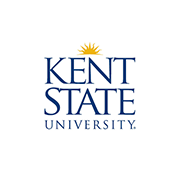Courses
Semester one
-
Visual basic programming
-
Or applied security essentials
-
Survey of information technology
-
Introduction to operating systems and networking technology
-
Destination kent state: first year experience
-
Kent core requirement
Semester two
-
Introduction to web site technology
-
Computer assembly and configuration
-
Intermediate office productivity apps
-
Kent core requirement
Semester three
-
Network setup and configuration
-
Workgroup productivity software
-
Kent core requirement
Semester four
-
Cyber ethics in information technology
-
Seminar in information technology
-
Kent core requirement
Semester five
-
Ergonomics in computer systems
-
Survey of information security, internet fraud and computer forensics (wic)
-
Technical and applied studies cornerstone
-
Kent core requirement
Semester six
-
Concentration requirements
-
Information technology (it) elective
Semester seven
-
Help desk support
-
Social media security
-
Concentration requirement
-
General electives
Semester eight
-
Seminar in emerging computer and information technologies
-
Concentration requirement
-
General elective
Minimum total credit hours: 120






